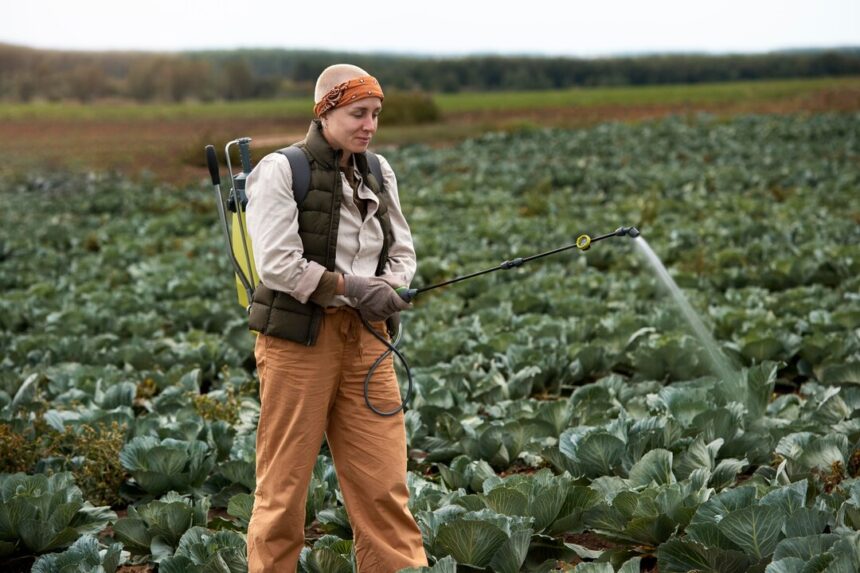Protecting crops from pests and diseases is a crucial part of farming. Effective pest management ensures healthy crops, maximizes yields, and reduces financial losses. Farm tools, when used correctly, can play a significant role in crop protection. This guide outlines how South African farmers can use farm tools efficiently to safeguard their crops against pests and diseases.
Understand Your Pest Management Needs
Before choosing and using tools, identify the specific pests and diseases affecting your crops. Conduct regular inspections and consult agricultural experts to determine the severity of the problem. Understanding your farm’s unique challenges helps in selecting the right tools and techniques for pest management.
Choose the Right Tools for Crop Protection
Selecting the appropriate tools is essential for effective pest control. Here are some commonly used tools and their applications:
- Sprayers: Used for applying pesticides, fungicides, and herbicides. Options include handheld, backpack, or motorized sprayers, depending on the size of your farm.
- Hoe and Tiller: Effective for uprooting weeds that harbor pests and compete for resources with crops.
- Pruning Tools: Essential for removing diseased or pest-infested plant parts.
- Crop Covers and Netting: Used to shield plants from insects, birds, and larger pests.
- Traps and Baits: Useful for monitoring and reducing pest populations.
Follow Best Practices for Using Sprayers
Sprayers are among the most common tools for pest management. To ensure effectiveness and safety:
- Use the correct nozzle for your crop and pest problem. Different nozzles produce varied spray patterns and droplet sizes.
- Mix pesticides according to manufacturer guidelines. Overdosing can harm crops and the environment, while underdosing reduces effectiveness.
- Calibrate sprayers regularly to maintain accurate application rates.
- Wear protective gear, including gloves, masks, and goggles, to minimize exposure to chemicals.
Incorporate Mechanical and Physical Controls
Farm tools can help reduce pest infestations through mechanical and physical methods:
- Use sticky traps or pheromone traps to attract and capture pests like fruit flies and moths.
- Employ row covers or fine mesh netting to create a physical barrier against insects.
- Regularly till the soil using hoes or tillers to disturb pest habitats and destroy their breeding grounds.
Adopt Integrated Pest Management (IPM)
Integrated Pest Management (IPM) combines cultural, mechanical, biological, and chemical methods for sustainable pest control. Tools play a vital role in IPM:
- Cultural Practices: Use tools to implement crop rotation and maintain proper spacing to reduce pest-friendly conditions.
- Biological Controls: Release beneficial insects like ladybugs and use tools like sprayers to apply biological pesticides.
- Chemical Controls: Use pesticides as a last resort, ensuring targeted application with calibrated sprayers.
Maintain and Store Tools Properly
Poorly maintained tools can reduce efficiency and spread pests or diseases. To maximize tool performance:
- Clean tools after every use to remove dirt, pesticide residues, and potential pest eggs.
- Sharpen blades and repair any damages to maintain functionality.
- Store tools in a dry, secure place to prevent rust and contamination.
Leverage Technology for Better Results
Modern farming technologies enhance traditional tools for more effective pest management:
- Use drone sprayers for precise application in large fields.
- Install sensor-based pest monitoring systems to detect infestations early.
- Utilize mobile apps to identify pests and diseases and receive tailored management recommendations.
Train Workers on Proper Tool Use
Equip farmworkers with the knowledge and skills to handle tools correctly. Offer training on safe pesticide application, tool maintenance, and efficient usage to ensure optimal results and safety for all.
Adopt Environmentally Friendly Practices
Minimize the environmental impact of pest management by:
- Using organic pesticides and bio-control methods.
- Practicing targeted application to avoid affecting non-target organisms.
- Recycling or properly disposing of pesticide containers.
Using farm tools effectively for crop protection and pest management is a combination of the right equipment, proper techniques, and sustainable practices. By integrating traditional tools with modern technology and following safety protocols, South African farmers can achieve healthier crops, increased yields, and a safer farming environment.
Join 'Farmers Mag' WhatsApp Channel
Get the latest Farming news and tips delivered straight to your WhatsApp
CLICK HERE TO JOIN






